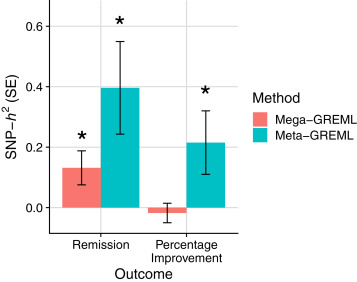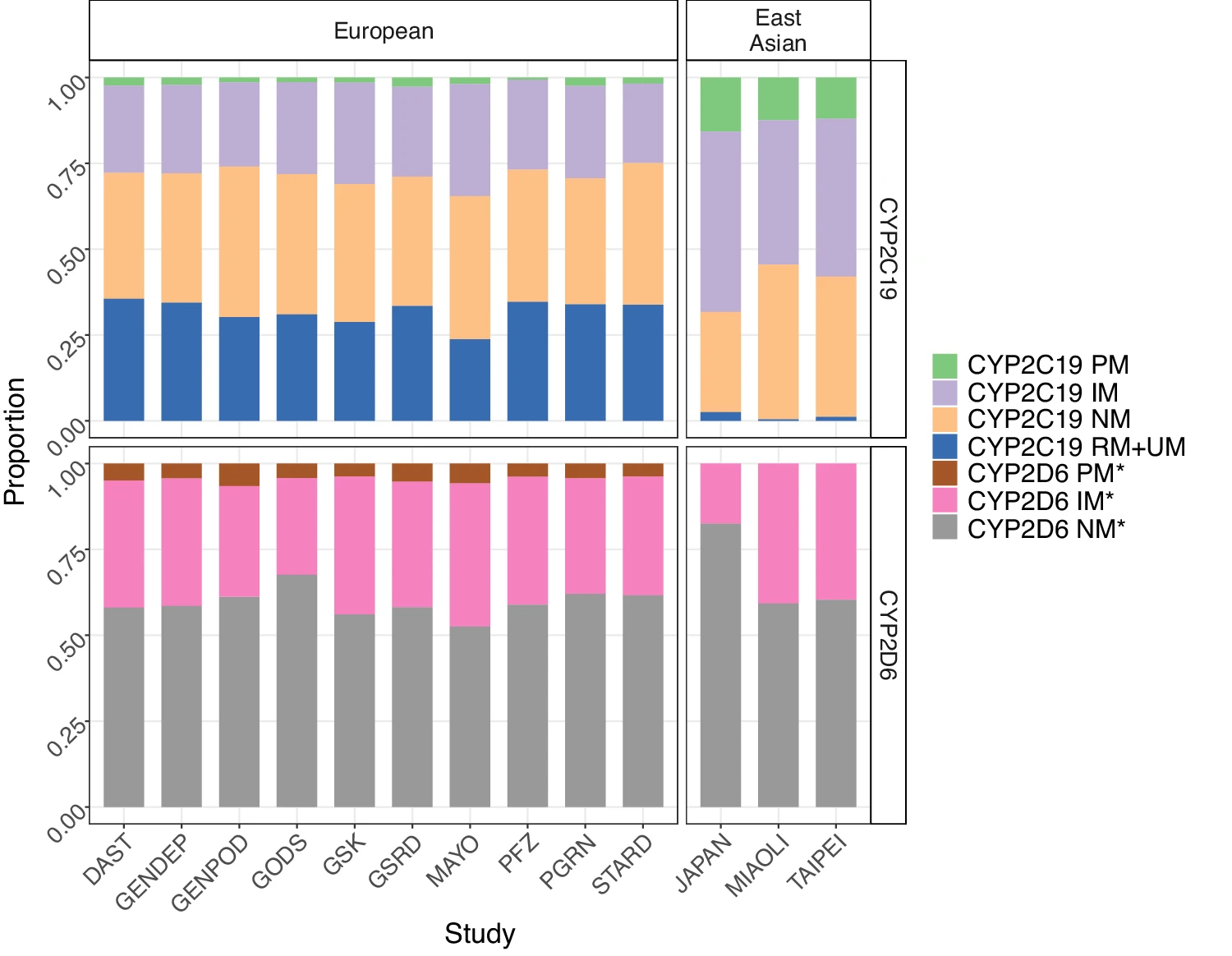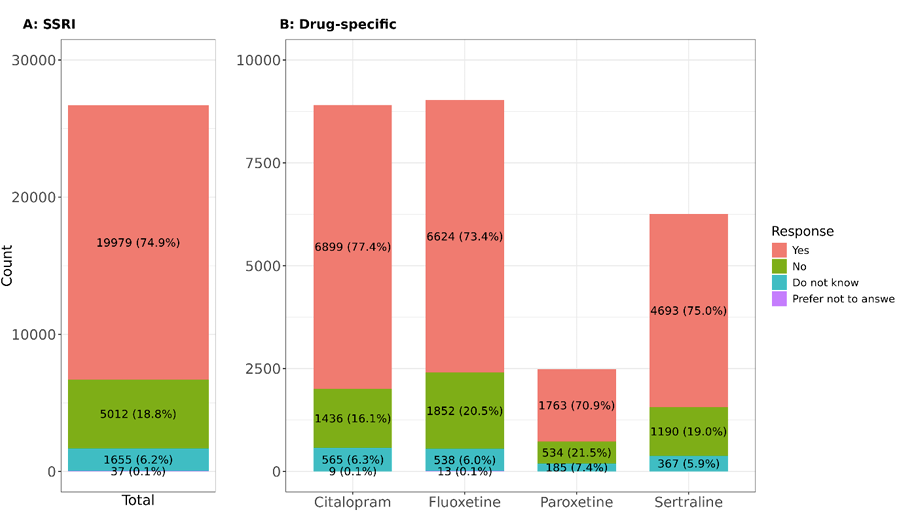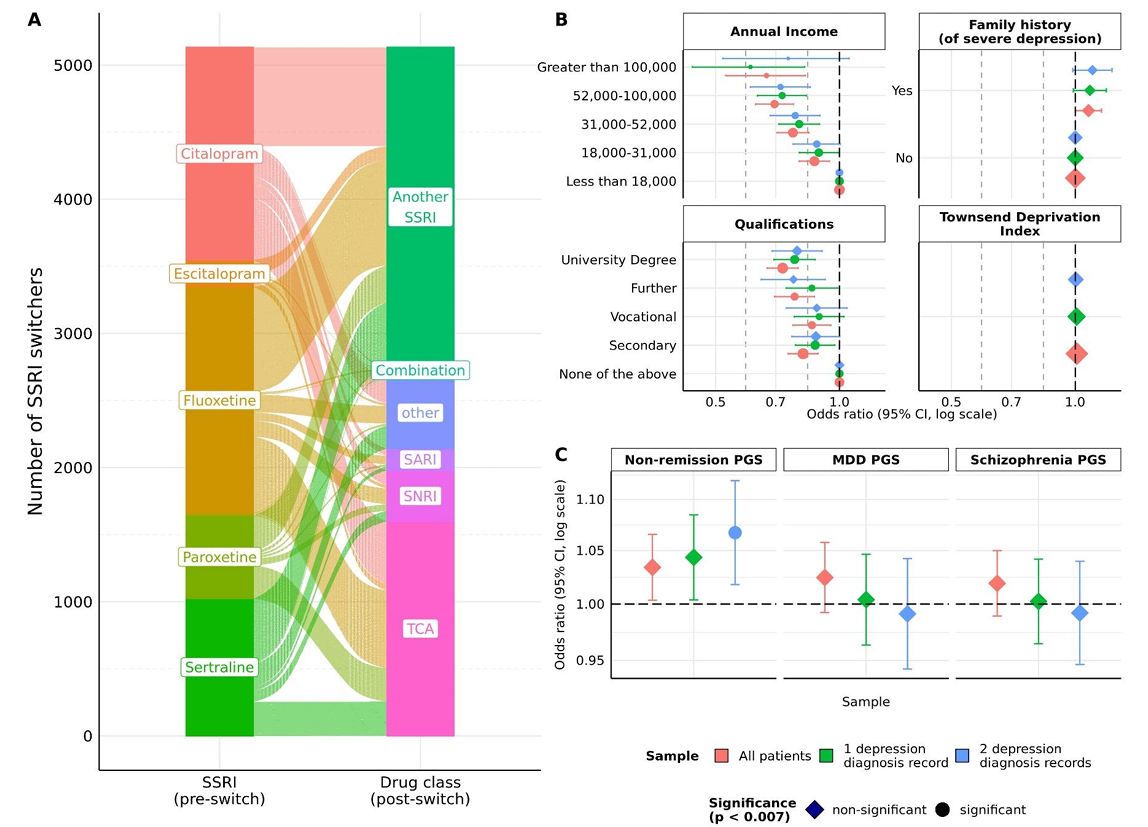AMBER Research
Identifying the Common Genetic Basis of Antidepressant Response
Antidepressants are a first-line treatment for depression. However, only
a third of individuals experience remission after the first treatment.
Common genetic variation, in part, likely regulates antidepressant
response, yet the success of previous genome-wide association studies
has been limited by sample size. This study performs the largest genetic
analysis of prospectively assessed antidepressant response in major
depressive disorder to gain insight into the underlying biology and
enable out-of-sample prediction.
Overview and
code: Click here
Paper:
Pain O, Hodgson K, Trubetskoy V, et al. Identifying the Common Genetic
Basis of Antidepressant Response. Biol Psychiatry Glob Open Sci.
2022;2(2):115-126.

Antidepressant response and CYP enzyme metabolizer statuses
Cytochrome P450 enzymes including CYP2C19 and CYP2D6 are important for
antidepressant metabolism and polymorphisms of these genes have been
determined to predict metabolite levels. Nonetheless, more evidence is
needed to understand the impact of genetic variations on antidepressant
response.
Overview and code:
Click here
Paper:
Li, D., Pain, O., Fabbri, C. et al. Metabolic activity of CYP2C19 and
CYP2D6 on antidepressant response from 13 clinical studies using
genotype imputation: a meta-analysis. Transl Psychiatry 14, 296 (2024).

Self-reported antidepressant response outcomes in UK Biobank
In major depressive disorder (MDD), only ~35% achieve remission after
first-line antidepressant therapy. Using UK Biobank data, we identify
sociodemographic, clinical, and genetic predictors of antidepressant
response through self-reported outcomes, aiming to inform personalized
treatment strategies.
Overview and code:
Click here
Preprint:
Kamp M, Lo C, Kokkinidis G, Chauhan M, Gillett A, Pain O et
al. Sociodemographic, clinical, and genetic factors associated with
self-reported antidepressant response outcomes in the UK Biobank.
Psychological Medicine. 2025 Jan 20.

Antidepressant switching in UK Biobank and Generation Scotland
Selective serotonin reuptake inhibitors (SSRIs) are a first-line
pharmacological therapy in major depressive disorder (MDD), but
treatment response rates are low. Clinical trials lack the power to
study the genetic contribution to SSRI response. Real-world evidence
from electronic health records provides larger sample sizes, but novel
response definitions are needed to accurately define SSRI
non-responders.
Overview and code:
Click here
Preprint:
Lo,
Chris Wai Hang, Alexandra C. Gillett, Matthew H. Iveson, Michelle Kamp,
Chiara Fabbri, Win Lee Edwin Wong, Dale Handley et al. “Antidepressant
Switching as a Proxy Phenotype for Drug Nonresponse: Investigating
Clinical, Demographic, and Genetic Characteristics.” Biological
Psychiatry Global Open Science 5, no. 4 (2025): 100502.

![]()